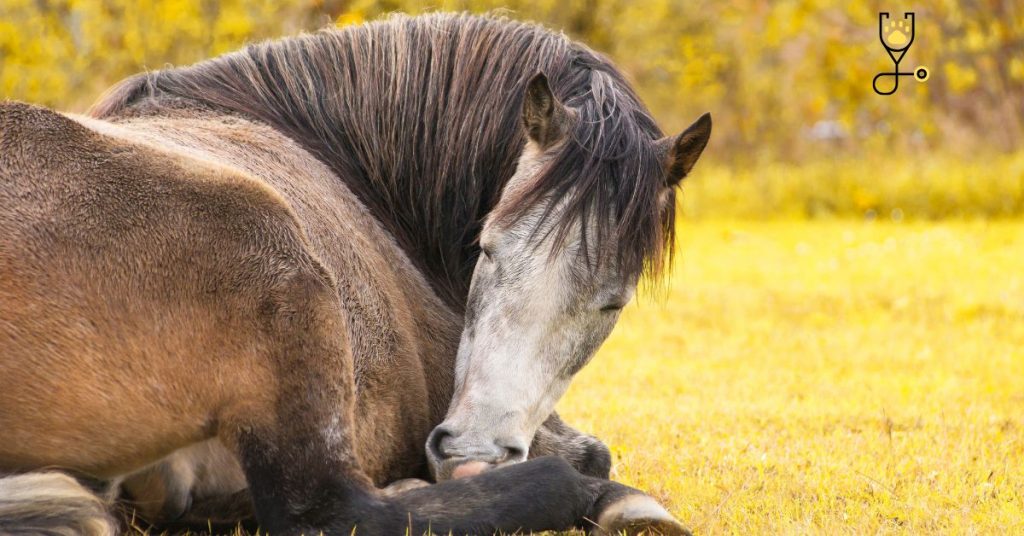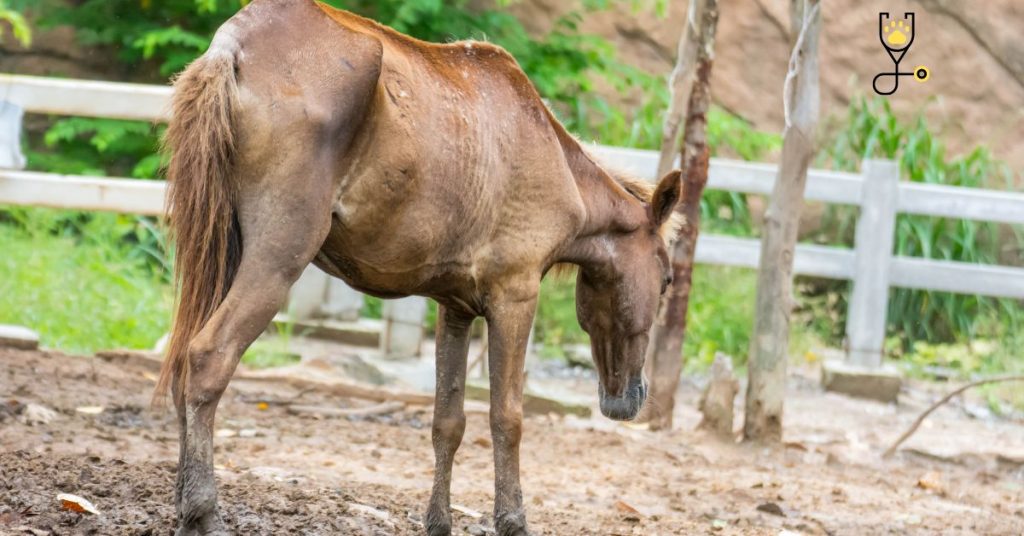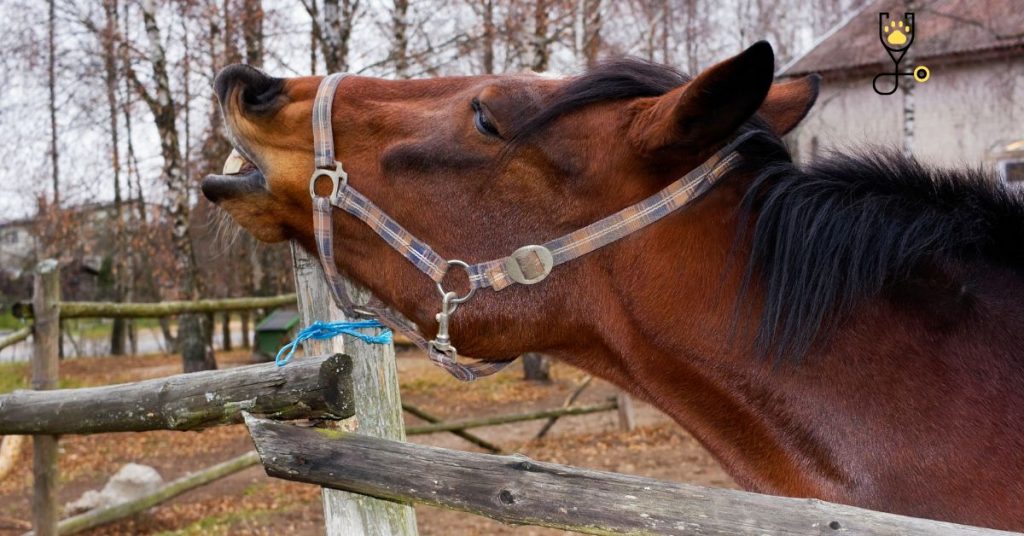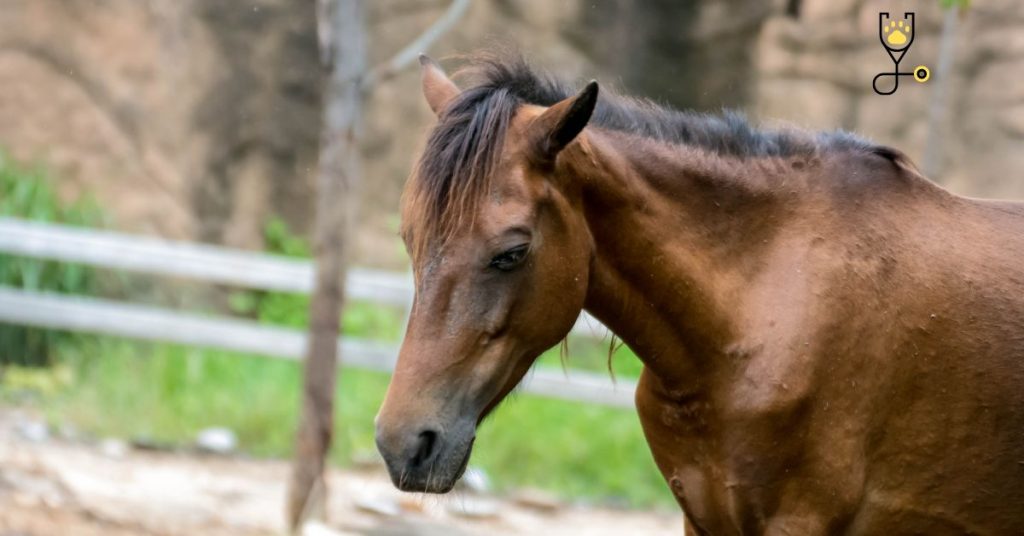When most people think of sunburn, they think of human skin. However, horses can also get sunburned. Just like in people, the severity of a horse’s sunburn will depend on how much exposure he or she has to the sun and how sensitive their skin is. Horses that are susceptible to getting sunburned should be kept out of direct sunlight as much as possible, especially during the hours when the sun’s rays are strongest. In this post, we’ll discuss the symptoms, causes, and treatment options for sunburn in horses. We’ll also cover some prevention tips to help keep your horse safe from the harmful effects of UV radiation.
What is sunburn or Photosensitivity In Horses?
Sunburn, also known as photosensitivity, is a condition that affects horses and other animals who are exposed to too much sunlight. The sun’s ultraviolet (UV) rays can damage the skin, causing inflammation, pain, and even blistering. In severe cases, sunburn can lead to skin cancer. Horses are particularly susceptible to sunburn because their fur does not provide adequate protection from the sun’s rays. White horses and those with light-colored coats are at the greatest risk, but any horse can be affected if exposed to enough UV radiation.

Types of sunburn or Photosensitivity In Horses
There are two types of sunburn that can affect horses:
1. Solar dermatitis: This is the most common type of sunburn. It affects the superficial layers of the skin and typically causes redness, swelling, and pain.
2. Solar urticaria: This is a more severe form of sunburn that affects the deeper layers of the skin. It can cause large welts (hives) and intense itching. In severe cases, solar urticaria can lead to anaphylactic shock, which is a potentially life-threatening allergic reaction.
Causes of solar dermatitis or Photosensitivity In Horses
-Exposure to ultraviolet (UV) radiation from the sun-Certain medications, such as tetracyclines and nonsteroidal anti-inflammatory drugs (NSAIDs)
-Certain plants, such as poison ivy, poison oak, and stinging nettles-Certain chemical compounds, such as those found in fly sprays and sunscreen products

Symptoms of sunburn or Photosensitivity In Horses
There are many symptoms that can be associated with sunburn in horses. The most common include:
Red skin
The redness associated with sunburn is caused by inflammation of the skin. This can range from mild to severe, depending on the amount of exposure to UV radiation.
Swelling
Sunburned skin will often swell and feel warm to the touch. In severe cases, the swelling can be so severe that it causes blisters.
Pain
Horses with sunburn often show signs of discomfort, such as pawing at their skin or rubbing against objects. They may also seem lethargic or irritable.
Skin lesions
Lesions are a common symptom of solar dermatitis. They can range in size from small bumps to large blisters. Lesions may also be crusty or scabby.
Hair loss
Horses with sunburn may lose patches of hair, especially around the affected areas.
Treatment of sunburn or Photosensitivity In Horses
If your horse has sunburn, it is important to seek veterinary care as soon as possible. The following treatment options may be recommended:
-Topical treatments: Topical medications, such as corticosteroids or antibiotics, can be applied to the affected areas to help reduce inflammation and pain.
-Oral medications: If the sunburn is severe, your veterinarian may prescribe oral medications, such as nonsteroidal anti-inflammatory drugs (NSAIDs) or antibiotics.
-Fluids: Your horse may need to be given fluids intravenously (IV) if he or she is dehydrated from the sunburn.
-Bandaging: The affected areas may be wrapped in a light bandage to protect them from further damage.

Preventions of sunburn or Photosensitivity In Horses
There are many things you can do to prevent your horse from getting sunburned. The following tips can help:
- Limit your horse’s exposure to the sun, especially during the peak hours of 10 a.m. to 2 p.m.
- Provide shelter from the sun, such as a tree or an awning.
- . Apply sunscreen to your horse’s nose, ears, and any other exposed areas of skin. Be sure to use a product that is specifically designed for horses and that has an SPF of at least 30.
- . Avoid using fly sprays and other products that contain chemicals that can cause photosensitivity.
- . Know the signs of sunburn and seek veterinary care if your horse shows any symptoms.
Diagnosis of sunburn or Photosensitivity In Horses
A diagnosis of sunburn can be made based on a physical examination and a history of exposure to UV radiation. Your veterinarian may also recommend testing for certain conditions that can cause photosensitivity, such as liver disease or an allergic reaction to a medication.
Prognosis of sunburn or Photosensitivity In Horses
The prognosis for horses with sunburn is generally good. Most horses recover within a few days with proper treatment. However, severe cases of sunburn can lead to more serious complications, such as dehydration, infection, and shock. It is important to seek veterinary care as soon as possible if you think your horse has sunburn.
Conclusion
Sunburn, or solar dermatitis, is a condition that can affect horses of all ages. It is caused by exposure to UV radiation from the sun. Symptoms include redness, swelling, pain, and skin lesions. Sunburn can be prevented by limiting your horse’s exposure to the sun and using sunscreen products on exposed areas of the skin. If your horse does get sunburned, it is important to seek veterinary care as soon as possible.
Frequently Asked Questions
1. How can I tell if my horse has sunburn?
The most common symptom of sunburn is redness of the skin. Other symptoms include swelling, pain, and skin lesions.
2. What are the best ways to prevent sunburn in horses?
The best ways to prevent sunburn are to limit your horse’s exposure to the sun and use sunscreen products on exposed areas of the skin.
3. How do I treat sunburn on horses?
If your horse has sunburn, it is important to seek veterinary care as soon as possible. The following treatment options may be recommended: topical treatments, oral medications, fluids, and bandaging.
4. Can severe cases of sunburn lead to more serious complications?
Yes, severe cases of sunburn can lead to more serious complications, such as dehydration, infection, and shock. It is important to seek veterinary care as soon as possible if you think your horse has sunburn.
5. What is the prognosis for horses with sunburn?
The prognosis for horses with sunburn is generally good. Most horses recover within a few days with proper treatment. However, severe cases of sunburn can lead to more serious complications. It is important to seek veterinary care as soon as possible if you think your horse has sunburn.





